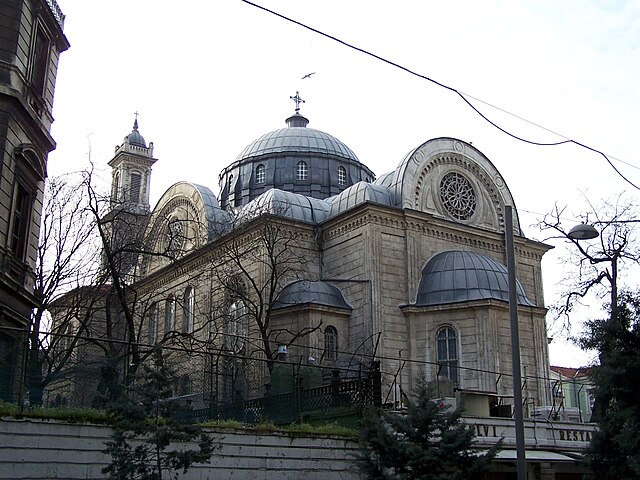The Surname Law of the Republic of Turkey is a law adopted on 21 June 1934, requiring all citizens of Turkey to adopt the use of fixed, hereditary surnames. Prior to 1934, Turkish families in the major urban centres had names by which they were known locally, and were used in a similar manner with a surname. The Surname Law of 1934 enforced the use of official surnames but also stipulated that citizens choose Turkish names. Until it was repealed in 2013, the eldest male was the head of household and Turkish law appointed him to choose the surname. However, in his absence, death, or mental incapacitation the wife would do so.
Image: Atatürk'ün 993 814 seri numaralı nüfus cüzdanı
Image: Atatürk'ün 993 815 seri numaralı nüfus cüzdanı
The Greeks in Turkey constitute a small population of Greek and Greek-speaking Eastern Orthodox Christians who mostly live in Istanbul, as well as on the two islands of the western entrance to the Dardanelles: Imbros and Tenedos. Greeks are one of the four ethnic minorities officially recognized in Turkey by the 1923 Treaty of Lausanne, together with Jews, Armenians, and Bulgarians.
Phanar Greek Orthodox College is a Greek minority school that was founded in the Ottoman Empire in 1454.
Agia Triada Greek Orthodox church in Beyoğlu, Istanbul
Pontian Greek ladies and children of Trebizond, early 20th century
The Greek Kingdom and the Greek diaspora in the Balkans and western Asia Minor, according to Professor G. Soteiriadis, 1919






